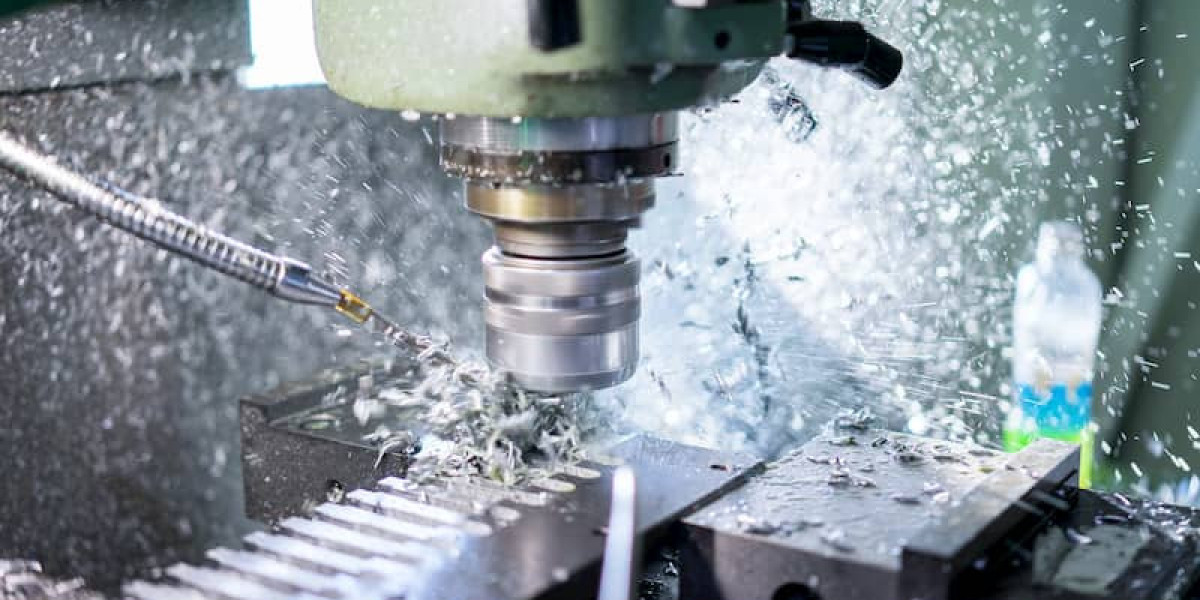Introduction:
Machining service is a critical aspect of modern manufacturing processes that involves the shaping, cutting, and forming of raw materials into desired components or parts. It encompasses a wide range of techniques, tools, and processes used to create precise and intricate designs with high accuracy and quality. In this article, we will explore the concept of machining service, delve into its key processes and tools, and examine its significant contributions to various industries.
- Understanding Machining Service:
Machining service refers to the process of using various machining techniques to transform raw materials into finished products. It involves removing material from a workpiece to achieve the desired shape, size, and surface finish. Machining service is commonly used in industries such as automotive, aerospace, electronics, medical, and many others that require intricate and precise components.
- Key Processes in Machining Service:
2.1. Turning: Turning is a machining service process that involves rotating a workpiece while a cutting tool removes material from its surface. It is typically used to create cylindrical shapes, such as shafts, rods, and tubes. The workpiece is secured in a lathe, and the cutting tool moves parallel to the axis of rotation, removing excess material to achieve the desired dimensions.
2.2. Milling: Milling is a versatile machining service process that uses rotating multiple-point cutting tools to remove material from the workpiece. It can create various shapes, contours, and slots on the surface of the workpiece. Milling machines can perform operations such as face milling, end milling, and peripheral milling, allowing for complex and precise component manufacturing.
2.3. Drilling: Drilling is a machining service process used to create holes in a workpiece. It involves rotating a cutting tool called a drill bit and applying axial force to penetrate the material. Drilling machines come in various types, including drill presses and CNC drilling machines, enabling accurate hole creation in different materials and sizes.
2.4. Grinding: Grinding is a machining process that utilizes an abrasive wheel to remove material from the workpiece's surface. It is employed to achieve fine surface finishes and high dimensional accuracy. Grinding is commonly used in applications where precision and smoothness are critical, such as in the production of gears, bearings, and tooling components.
2.5. Boring: Boring is a machining process used to enlarge existing holes or create precise internal cylindrical surfaces. It involves rotating a single-point cutting tool to remove material from the workpiece's interior. Boring machines are commonly used in industries such as automotive and aerospace to produce engine cylinders, gearboxes, and other complex components.
- Key Tools in Machining Service:
3.1. Lathes: Lathes are machining servicev used for turning operations. They secure and rotate the workpiece while a cutting tool shapes it. Lathes come in various types, including manual lathes and CNC lathes, offering flexibility and precision in component manufacturing.
3.2. Milling Machines: Milling machines utilize rotating cutting tools to remove material from the workpiece. They can perform a wide range of operations, including face milling, peripheral milling, and drilling. CNC milling machines provide enhanced precision and automation capabilities.
3.3. Drilling Machines: Drilling machines are used to create holes in the workpiece. They can range from simple drill presses to advanced CNC drilling machines, enabling accurate and consistent hole creation.
3.4. Grinding Machines: Grinding machines use abrasive wheels to remove material and achieve fine surface finishes. They come in various types, including surface grinders, cylindrical grinders, and tool and cutter grinders, catering to different machining requirements.
3.5. Boring Machines: Boring machines are designed for enlarging existing holes or creating precise internal surfaces. They provide accurate and controlled operations for complex components.
- Contributions of Machining Service to Industries:
4.1. Automotive Industry: Machining service plays a crucial role in the automotive industry, producing engine components, transmission parts, chassis components, and other critical elements. The precision and reliability of machining processes ensure the quality and performance of automotive vehicles.
4.2. Aerospace Industry: The aerospace industry relies heavily on machining service to manufacture intricate and high-precision components for aircraft and spacecraft. Machining processes contribute to the production of engine parts, structural components, landing gears, and complex assemblies that meet stringent safety and performance standards.
4.3. Electronics Industry: In the electronics industry, machining service is utilized for the production of printed circuit boards (PCBs), connectors, and various electronic housings. The accuracy and precision of machining processes enable the creation of intricate designs and tight tolerances required for electronic components.
4.4. Medical Industry: Machining service plays a vital role in the medical industry, producing components for medical devices, implants, surgical instruments, and prosthetics. Machining processes ensure the accuracy, biocompatibility, and reliability of these critical medical components.
4.5. General Manufacturing: Machining service is widely used in general manufacturing across various industries. It facilitates the production of consumer goods, industrial equipment, machine tools, and other products that require precise dimensions, surface finishes, and functional characteristics.
Conclusion:
Machining service is a fundamental process in modern manufacturing, contributing significantly to various industries. Through turning, milling, drilling, grinding, and boring processes, combined with specialized tools and machinery, intricate and precise components can be produced with high accuracy and quality. The automotive, aerospace, electronics, medical, and general manufacturing industries rely on machining service to manufacture critical components that meet strict requirements and ensure the performance, safety, and functionality of their products. As technology continues to advance, machining service is expected to evolve further, enabling even more complex and efficient manufacturing processes in the future.



